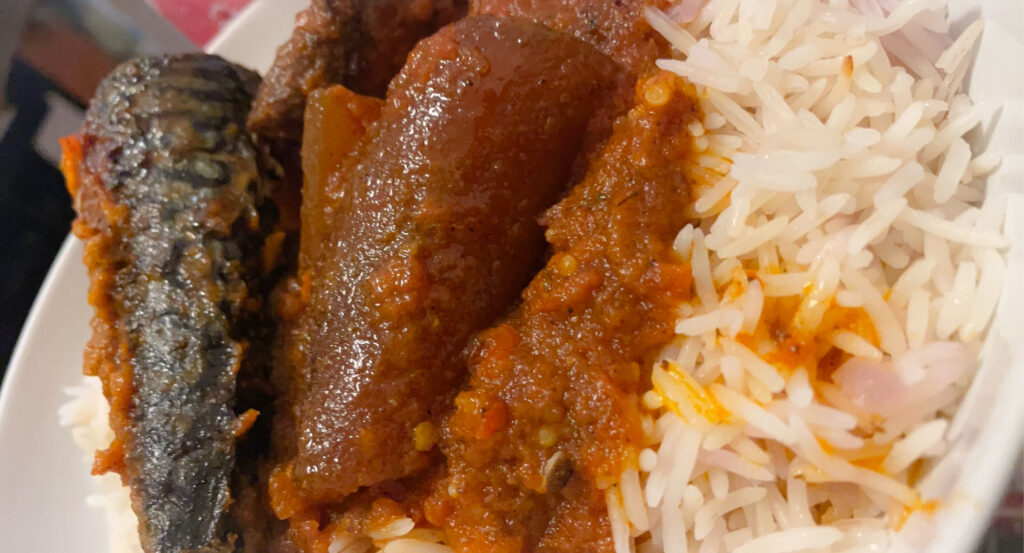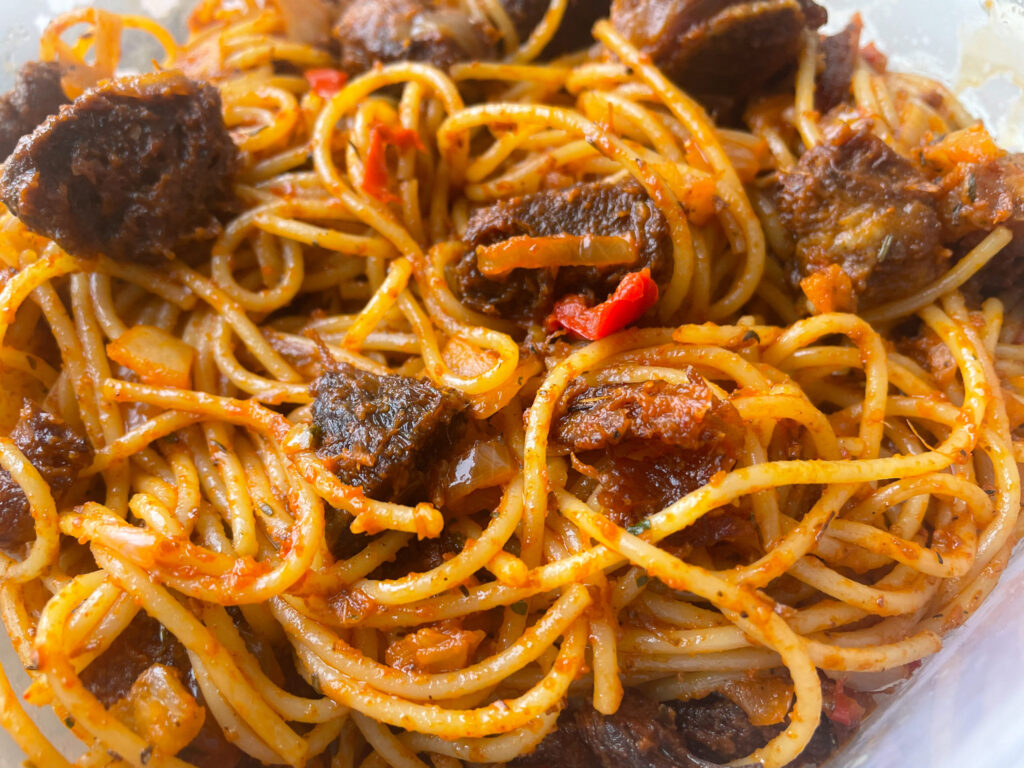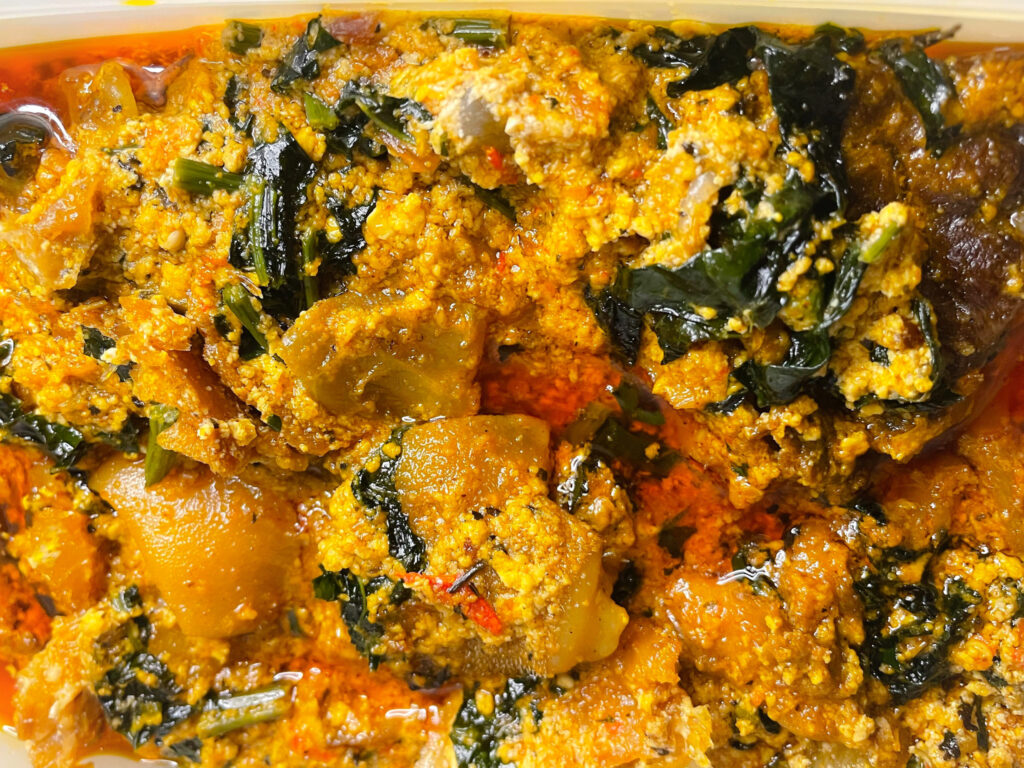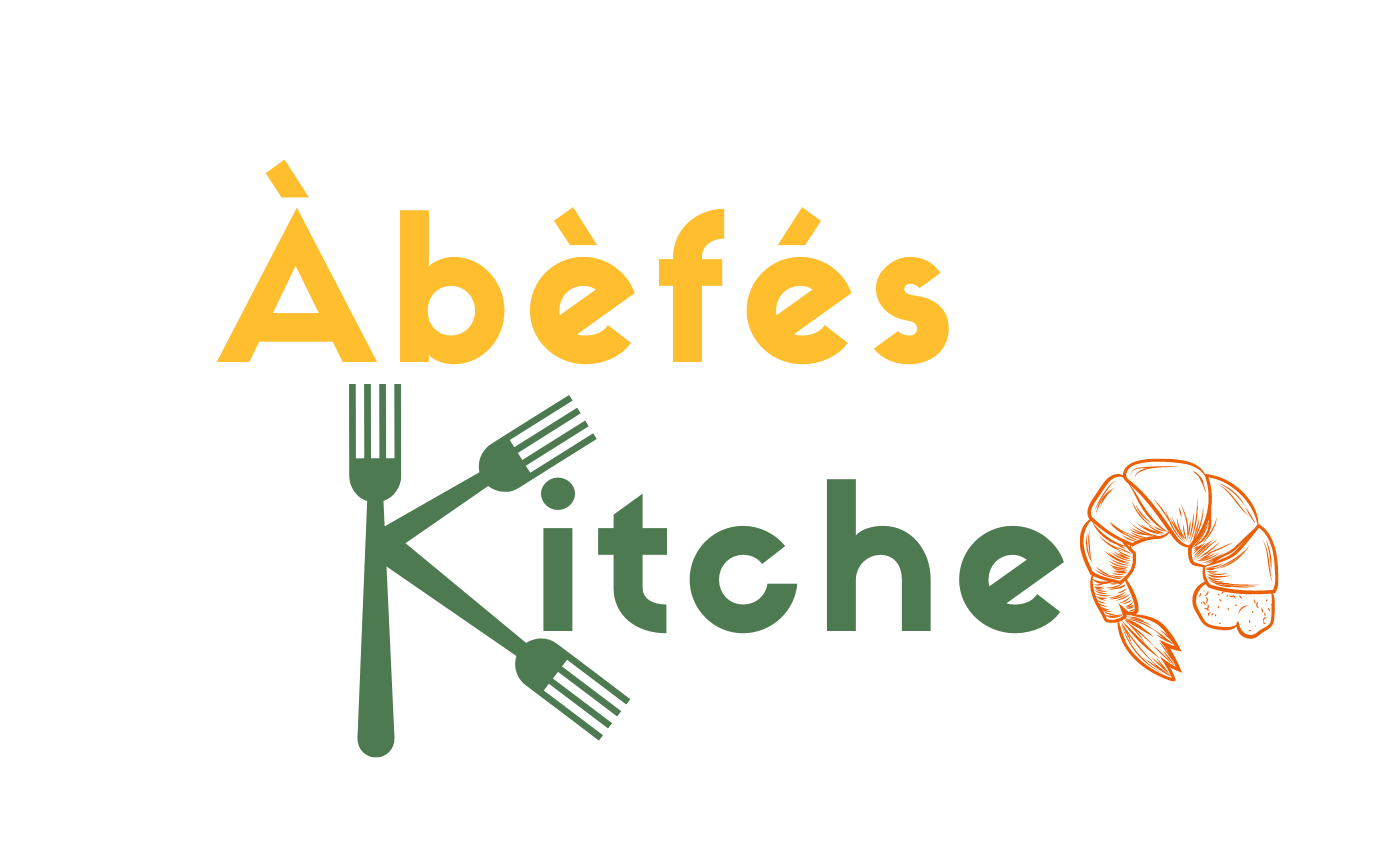Want to feel more confident in the kitchen? Focus on the basics. These are the everyday cooking skills that make a big difference in your Nigerian cooking journey.
3 Essential Cooking Skills Every Home Cook Should Master
1. Boiling Rice Without It Turning Soggy
Perfect rice is the foundation of many Nigerian meals. Here’s how to get it right every time:
Start with the right ratio – use 2 cups of water for every 1 cup of rice. Rinse your rice thoroughly in cold water until the water runs clear (this removes excess starch that causes stickiness).
Bring the water to a boil first, then add the rinsed rice and a pinch of salt. Reduce heat to low, cover with a tight-fitting lid, and let it simmer for 18-20 minutes without peeking! Turn off the heat and let it rest for 5 minutes before fluffing with a fork.
Common mistakes to avoid: Using too much water, stirring while cooking (this releases starch and makes rice sticky), or lifting the lid too often (releases steam needed for cooking).
2. Seasoning Food Properly
Good seasoning transforms ordinary ingredients into memorable meals. Nigerian food is known for its bold flavours, and proper seasoning is key.
Layer your flavours by adding spices at different cooking stages. Start with aromatics like onions and garlic as your base. Add stock cubes (like Knorr or Maggi) crushed between your fingers for even distribution.
Use salt in small amounts, tasting as you go rather than adding it all at once. Remember that stock cubes already contain salt, so adjust accordingly.
For authentic Nigerian flavour, don’t forget curry powder, thyme, and bay leaves in your stews and rice dishes. Ground crayfish adds depth to soups, while iru (locust beans) gives that traditional taste to many dishes.
Pro tip: Keep a small bowl of salt by the hobs instead of measuring spoons. Use your fingers to pinch and sprinkle; this gives you better control.
3. Sautéing Onions The Right Way
Properly sautéed onions form the flavour base for nearly every Nigerian dish. Master this, and your cooking will immediately improve.
Start with a hot pan and 2-3 tablespoons of oil (palm oil for traditional taste, vegetable oil for a neutral flavour). Add diced onions and cook on medium heat, stirring occasionally.
For Nigerian stews, you want golden brown onions (about 5-7 minutes) which add sweetness and depth. For quicker dishes like jollof spaghetti, translucent onions (3-4 minutes) work perfectly.
The secret is patience, rushing this step means missing out on developing those rich foundational flavours that make Nigerian food so delicious.
Practice Makes Perfect: 3 Beginner-Friendly Nigerian Recipes
White Rice & Stew with Mackerel Fish and Ponmo
This classic dish helps you practice all three basic skills above!
For the rice: Measure 2 cups of long-grain rice, rinse thoroughly until water runs clear. Bring 4 cups of water and a pinch of salt to a boil. Add rice, cover, reduce heat to low and cook for 18-20 minutes until water is absorbed.
For the stew: Blend 6 ripe tomatoes, 3 red bell peppers, and 3 scotch bonnet peppers (adjust to your spice preference). In a pot, heat 1/3 cup of palm oil until hot but not smoking.

Add 1 finely diced onion and sauté until golden brown (about 5-6 minutes). Pour in the blended mixture and cook on medium heat for about 15-20 minutes, stirring occasionally until oil floats to the top.
Add 2 stock cubes, 1 teaspoon of thyme, 1 teaspoon of thyme, 1/2 teaspoon of garlic and ginger and salt to taste. Add chopped mackerel pieces (gutted and cleaned) and 1 cup of pre-boiled ponmo (cow skin) cut into bite-sized pieces. Simmer for 10 minutes to allow flavours to blend.
Serve the white rice with the stew spooned generously over the top.
Jollof Spaghetti with Fried Beef Chops
A quick one-pot meal that’s perfect for beginners!
For the beef chops: Cut 500g of beef into small pieces and season with 1 crushed stock cube, 1/2 teaspoon of thyme, 1/2 teaspoon of curry powder, and a pinch of salt. Let it marinate for at least 30 minutes. Heat 2 tablespoons of vegetable oil in a pan and fry the beef until brown and slightly crispy (about 7-10 minutes). Set aside.
For the jollof spaghetti: Bring a large pot of water to a boil and cook 500g of spaghetti until al dente (about 8-10 minutes). Drain and set aside.

In the same pot, heat 3 tablespoons of vegetable oil and sauté 1 chopped onion until translucent (practice your sautéing skills!). Add 2 tablespoons of tomato paste and stir for 1 minute.
Pour in 2 cups of blended tomatoes and peppers (2 tomatoes, 1 red bell pepper, 1 scotch bonnet) and cook for 5-7 minutes. Add 2 stock cubes, 1 teaspoon of curry powder, 1/2 teaspoon of thyme, and salt to taste.
Add the cooked spaghetti to the sauce and mix well. Fold in the fried beef chops, cover, and let it simmer on low heat for 5 minutes. Serve hot, garnished with sliced whatever veggies or add-ons, if you like.
Egusi Soup – Beginner Method
This simplified version is perfect for first-timers!
In a dry pan, lightly toast 2 cups of ground egusi (melon seeds) for 1-2 minutes, stirring constantly to prevent burning. Set aside.
Heat 1/4 cup of palm oil in a pot and sauté 1 chopped onion until soft (about 3-4 minutes). Add the ground egusi and stir for about 2 minutes.
Pour in 3 cups of water or meat stock and add 2 crushed stock cubes, 1 tablespoon of ground crayfish, and salt to taste. Stir well and let it cook uncovered on medium heat for 10 minutes, stirring occasionally to prevent lumping.

Add your choice of protein – 1 cup of cooked beef chunks, cow foot, fish, or chicken works well. Let it simmer for 5 minutes.
Add 2 handfuls of chopped spinach or basil leaf or bitter leaf (washed to reduce bitterness). Stir gently and cook for another 5 minutes until the soup thickens. Serve hot with fufu, garri, or pounded yam.
Simple Tips for Kitchen Confidence
- Taste as you go – Don’t wait until the end to check seasoning
- Prep ingredients before starting to cook (called “mise en place”)
- Clean as you cook to avoid overwhelming messes
- Start with fresh ingredients whenever possible
- Don’t rush the process – many Nigerian dishes develop flavour with time
It gets easier the more you try! Even experienced cooks had to start somewhere, and I’m hoping these basic recipes will build your skills and confidence.
What Nigerian dish would you like to master first? Start with these basics, and soon you’ll be cooking with confidence!

Leave a Reply